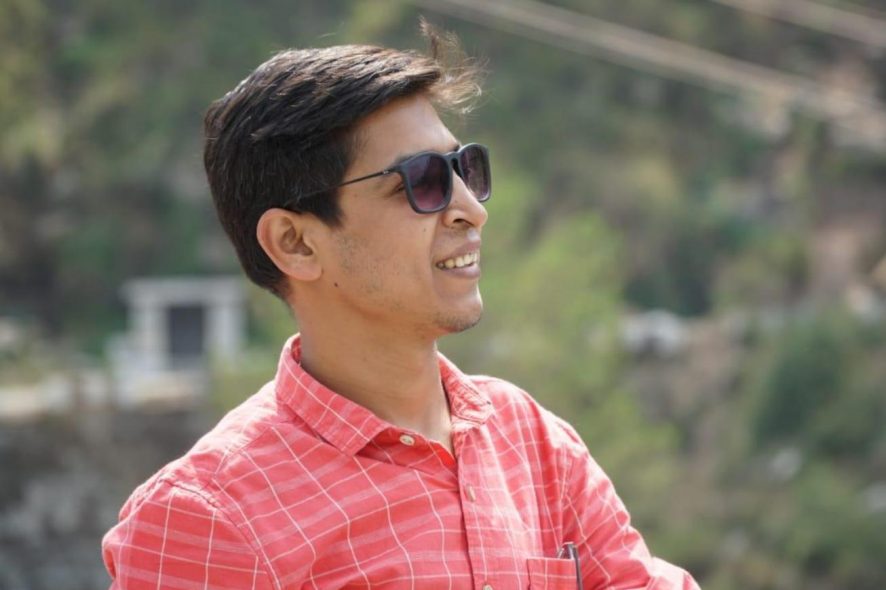Mr. Manu Prinja secured first rank in the HP Judicial Services, 2018. He has been interviewed by Vijaya Singh Gautam student ambassadors of EBC Group of Companies.
- Congratulations Mr. Manu Prinja, on securing the first rank in the HP Judicial Services 2018, clearing JRF-NET and also securing Rank 12 in P.G. CLAT 2019. It would be great if we could know more about you?( hobbies , education, interests , anything you would like to share about yourself etc.)
Thank You!
I have studied in Rajiv Gandhi National University of Law, Punjab from 2011 to 2016 for my B.A LL.B. In 2016-17, I pursued LL.M from Department of Law, Punjab University and after that I studied for my Judicial Examination Preparation. I like music, play chess and a bit of fan of football and cricket as well.
2. Why did you choose a career in judiciary?
I have always viewed the judiciary as the most important job in society. It is the highest of honour to be able to serve in the justice system and that was my dream.
3. What does it require to crack in the judicial services?
Knowledge of law and application of law are the two pillars of these exams. Bare acts are the key and if one is well versed with them, any common book shall suffice to clear the doubts. I did not take any coaching apart from one class before the interview.
Everyone has to handle stress in their own way, I use music and car drives to get my focus back.
4. Can you explain us the stages of appearing in judicial service exams and the right way to go about it?
The preliminary exam requires in depth knowledge of the bare act and landmark cases. Landmark cases are easy to find on google. The bare act knowledge should be very thorough so that a candidate is able to recognise the correct response to the MCQs.
The mains examination is a test of knowledge, application and endurance. The object should be to complete the test. Speed is key which leaves very little room for contemplation in the exam. The bare act knowledge comes to play here as well. If you are well versed with them, the applied questions will be easier as well.
The interview is the last stage, a fresh candidate should not focus on that. Only after the mains examinations are done then you should start preparing for the interview.
5.When do you think is it the ideal time to start preparing for judicial services? Also moots, research papers etc., what according to you helps the most in cracking judicial services examination?
There’s no ideal time to prepare for anything. It must come from within that you want to do something. In my case, I wanted to become a judge in Himachal. Irrespective of when the preparation starts, a candidate must be patient with himself and allow at least a year of reading to himself to get familiar with the laws.
Moots and research papers are both related to the application of law, further they help in securing confidence to put forward ones point of view in an interview. Even other co-curricular activities are important because the interview is a test of personality more than anything and these activities help in growth of a personality.
6. Where do you see yourself in another 10 years?
I see myself as a public servant after 10 years.
7. Do you think being a RGNUL graduate helped you in securing a place in the judicial services exam?
Yes of course my college(RGNUL) has a lot to do with my success. I learnt to read the law there and that is all a law college is for. It gave me the foundation to capitalise on.
8. Please share your views regarding patterns in judicial exams, hard work and commitment required to pursue a career as a law officer?
There’s no career that doesn’t require a commitment. Judicial services are no different. Hard work as they say is the key to success and that is absolutely true.








